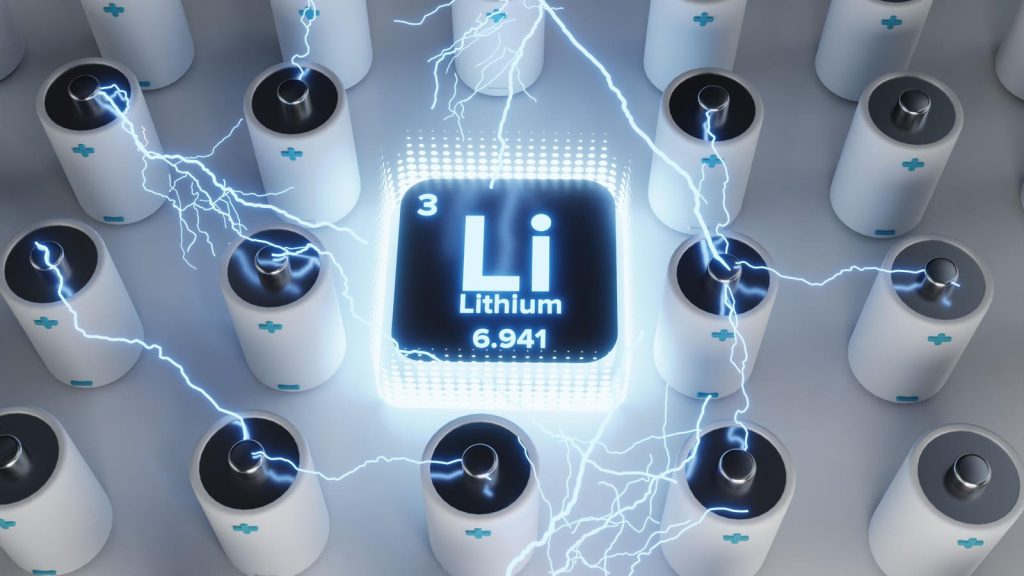The lithium market is currently experiencing a significant downturn, with prices plummeting over 80% from their 2022 peak. This decline has triggered a selloff in lithium mining stocks, and analysts remain skeptical about a near-term recovery due to persistent inventory buildup projected to last until at least 2027. The oversupply, primarily from China, coupled with a slowdown in electric vehicle (EV) adoption, is dampening demand for lithium, a crucial component in EV batteries. Further complicating the outlook is the potential rollback of EV incentives by the incoming Trump administration, raising concerns about the future of lithium demand and pricing. This uncertainty poses significant challenges for investors considering lithium stocks.
Despite the current market downturn, several factors suggest that lithium stocks might warrant a closer look. Firstly, strategic initiatives are underway to curtail lithium supply through mine closures and project deferrals. Companies like Mineral Resources and Albemarle have already taken steps to reduce production, and industry-wide capacity reductions are expected to lower lithium supplies by approximately 14% in 2025. Further production cuts are possible if prices approach marginal production costs, potentially leading to a tighter supply-demand balance.
Secondly, major energy companies are entering the lithium production space, signaling confidence in the long-term potential of the market. Berkshire Hathaway Energy Renewables and Occidental Petroleum are exploring sustainable lithium extraction from geothermal brine, while ExxonMobil plans to commence lithium production in 2027, aiming to support the manufacturing of over one million EVs annually by 2030. These investments from established energy players lend credibility to the long-term viability of lithium.
Thirdly, recent mergers and acquisitions (M&A) activity in the lithium mining sector suggests a potential for further consolidation, which could boost the perceived value of struggling lithium stocks. The merger of Sayona Mining and Piedmont Lithium creates a unified lithium business with a dual listing on ASX and Nasdaq, streamlining operations and potentially enhancing shareholder value. Rio Tinto’s acquisition of Arcadium Lithium at a significant premium underscores the strategic importance of lithium assets and the potential for long-term upside in the market.
Fourthly, while the Trump administration’s stance on EVs might appear negative for lithium demand, several factors mitigate this concern. Lithium’s applications extend beyond EVs to various consumer electronics, ensuring continued demand. Furthermore, the potential for increased domestic lithium production aligns with the administration’s focus on reducing reliance on China. Finally, Elon Musk’s support for Trump could potentially influence future EV policies, further supporting the industry’s growth.
Fifthly, the International Energy Agency (IEA) projects a substantial increase in global lithium demand over the next two decades, driven by the growth of clean energy technologies. This long-term positive outlook reinforces the strategic importance of lithium in the global transition to a sustainable energy future.
Considering the current market dynamics and the factors discussed above, a selective approach to investing in lithium stocks is recommended. Diversified companies with established operations in other sectors, dividend-paying stocks offering income potential, and small-cap stocks with significant growth potential are attractive options. Three specific stocks are highlighted: ExxonMobil (XOM), Rio Tinto Group (RIO), and Atlas Lithium (ATLX).
ExxonMobil’s diversified business model and established expertise in resource extraction position it well for success in the lithium market. The company’s focus on cost reduction, high-return projects, and strategic partnerships further strengthens its investment profile. Its strong dividend track record and commitment to shareholder returns offer additional appeal to investors. Rio Tinto, a global mining giant, benefits from its diverse portfolio of critical minerals and the strategic acquisition of Arcadium Lithium. The company’s focus on high-quality production and strong free cash flow generation supports its dividend payouts and long-term growth prospects.
Atlas Lithium, a small-cap company focused on lithium exploration and production in Brazil, offers higher growth potential but also carries greater risk. The company’s secured operational permit for its flagship Neves project, promising exploration results, and full funding for first production, backed by prominent investors, mitigate some of this risk. Despite the current market downturn, Atlas Lithium’s strategic positioning in Brazil’s Lithium Valley and its potential for significant capital appreciation make it a compelling investment for risk-tolerant investors.
However, it’s crucial to acknowledge the inherent uncertainty surrounding the lithium market. The current low valuations, coupled with the lack of near-term recovery signals, may represent a value trap rather than a value opportunity. Therefore, investors should exercise caution and conduct thorough due diligence before investing in lithium stocks. Diversification across the broader stock market remains a prudent strategy until clearer signs of a lithium market recovery emerge. This analysis is not financial advice, and readers are encouraged to conduct their own research and consult with a financial advisor before making investment decisions.










